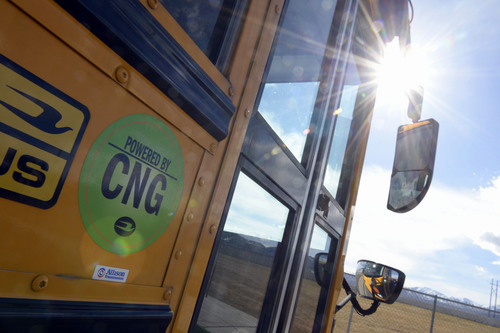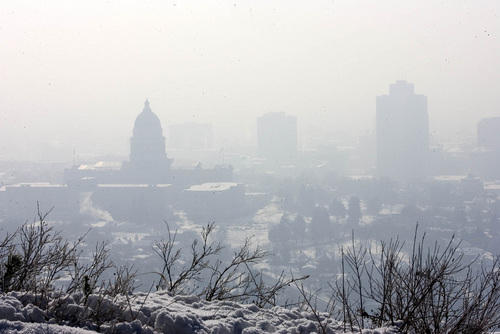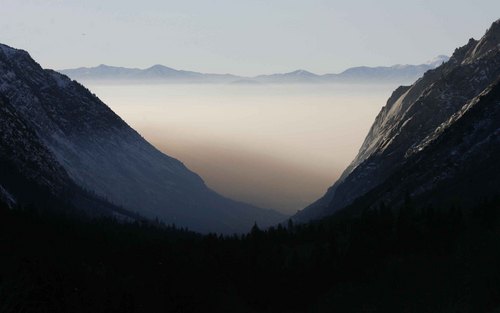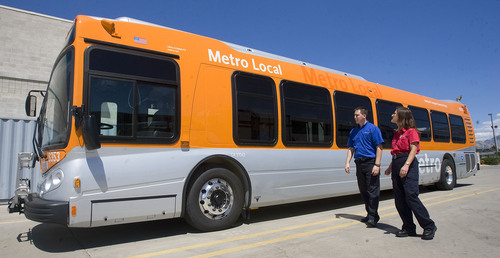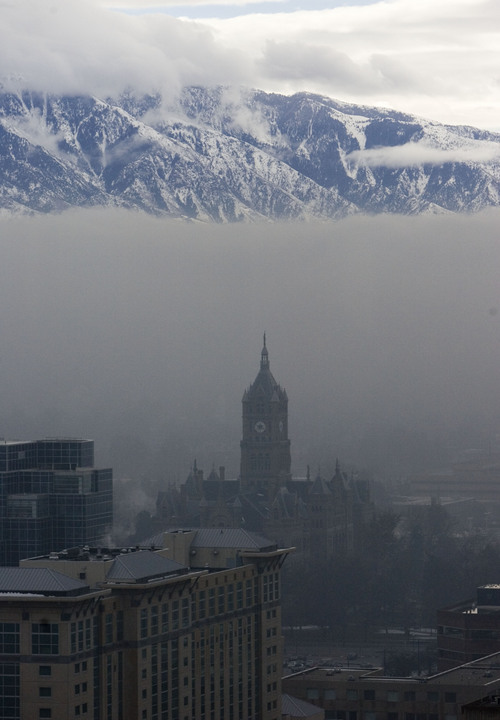This is an archived article that was published on sltrib.com in 2014, and information in the article may be outdated. It is provided only for personal research purposes and may not be reprinted.
As smog smothered Salt Lake City during the 2013 Legislature, protests about air pollution were loud and frequent — and lawmakers responded by passing SB275 to create an interlocal panel to find ways to expand use of cleaner fuels, especially natural gas.
That group — dubbed the Alternative Energy Interlocal Entity Board — was then ballyhooed as a great hope to improve air quality. Some high-profile city officials and lawmakers were appointed, and the panel began to meet.
But the board is about to die a quiet death now, and that has clean-air advocates saying it shows how little politicians actually accomplish even when they pass such a measure.
The panel's two official sponsors, the Utah Transit Authority and the Utah Office of Energy Development, are in the process of signing an agreement to disband it. The UTA Board is expected to approve the move later this month.
Why?
The Legislature never supplied any funding for the group, and the UTA and the Office of Energy Development do not want to spend their own money on it.
"It was a good idea without a funding source," said Charlie Luke, a Salt Lake City Council member who also was the chairman of the interlocal panel.
"We have to figure out, as Utahns, ways to actually make a difference [in cutting pollution]. That also requires paying for it," said fellow panelist Chris Bleak, who sits on the UTA Board. He also heads a UTA Board committee that this week endorsed dismantling the interlocal panel.
When the interlocal panel was born, it was charged with finding ways to expand Utah's natural-gas fueling network, helping to convert more vehicles to run on that fuel, and to find ways to promote and overcome obstacles to the use of other alternative fuels.
Bleak said the panel discussed several interesting ways to proceed toward those goals. "But there's no money to do it," he said. "The Legislature is going to have to wrestle with this."
Sen. Stuart Adams, R-Layton, tried to fix that this year. He pushed SB243 to add $1 a month to utility bills to boost efforts to reduce air pollution, including funding the interlocal panel.
The Senate passed it, but the House did not consider it in a year when leaders vowed not to raise taxes.
So without money, officials have decided to disband the panel, although Bleak says laws are in place to resurrect it if the Legislature comes through with some money.
"The concept was good and the goals were good," Luke said. "But the way it was set up statutorily, there wasn't a revenue source and there wasn't any way to move forward in a meaningful way."
Some advocates argue the state is actually retreating in the battle against bad air.
"We're regressing, not progressing," Cherise Udell, president of Utah Moms for Clean Air, said about the board disbanding.
She said creating the board turned out to be part of "a lot of feel-good stuff that has been happening at the Legislature in the last few years, in part because the public has been demanding action."
But those steps, she added, mostly amount to "small bills that aren't all that consequential."
Brian Moench, president of Utah Physicians for Healthy Environment, said, "during the last two sessions, several 'clean air' bills were passed by the Legislature, but dismantled for a lack of funding. It's kind of a schizophrenic approach to public policy and, obviously, another one of many missed opportunities to reduce air pollution."
Meanwhile, UTA for its part has moved forward with using compressed natural gas (CNG). The agency began adding CNG-fueled buses to its fleet, buying an initial 24 this year and ordering 23 more next year with plans to purchase 37 more in 2016.
The CNG buses cost more initially than diesel-fueled ones, but CNG is so much cheaper as a fuel that the CNG vehicles tend to cost less in the long run.
UTA General Manager Michael Allegra told an agency committee this week that it plans to buy only natural gas buses for the next several years to replace older diesel ones, not only to make its fleet cleaner but to ensure that it is not dependent on diesel, which sees great swings in price.
UTA also plans to build this year its own natural-gas fueling station in downtown Salt Lake City, with a new garage to maintain its growing natural-gas fleet.
"I do hope we're at the beginning and not at the end" of pushing natural gas and other fuels, Bleak said, despite the death of the alternative-energy board.


